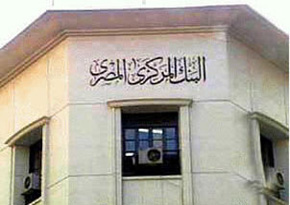The Egyptian inflation rate was probably little changed in January, supporting the Egyptian Central Bank’s decision to keep interest rates on hold, according to Bloomberg
Urban inflation, the benchmark rate that the central bank monitors, probably accelerated to 13.4 percent from 13.2 percent in December, said the median estimate in a Bloomberg survey of five economists. The Egyptian government’s statistics agency in Cairo is set to release the data tomorrow.
“I don’t see any evidence of food prices spilling over into other parts of the economy, therefore I don’t think that the central bank is under pressure to raise interest rates anytime soon,” said Alia Mamdouh, an economist at CI Capital, an Egyptian investment bank. She forecast a rate of 13.4 percent in January.
The central bank, which meets to discuss interest rates every six weeks, has kept its benchmark overnight deposit rate at a three-year low of 8.25 percent for the last three meetings, citing “subdued” inflationary pressures.
The bank cut rates six times in 2009 to help the economy through the global financial crisis, which reduced foreign direct investment and hurt Egypt’s revenue from tourism and fees from the Suez Canal, a major global shipping route. The bank’s next rates meeting is on March 18.
Egypt’s economy expanded 4.7 percent in the fiscal year that ended in June, beating the forecasts of the International Monetary Fund. The government expects the economy to grow about 5 percent in the current fiscal year. It was expanding at a 7 percent pace in the three years before the crisis.
Stocks Rise
The economy’s recovery has helped Egypt’s benchmark EGX30 stock index rise 12 percent this year, led by phone company Orascom Telecom Holding SAE, whose shares have gained 33 percent.
The prices of food and drinks, which make up more than 45 percent of the consumer price index, rose 22.3 percent in 2009, according to the statistics agency.
Core inflation, which excludes the prices of fruits and vegetables along with regulated prices, accelerated to 6.85 percent in December from 6.59 percent in the previous month.
It probably accelerated again in January to 7.1 percent, according to Simon Williams, chief Middle East economist at HSBC Holdings Plc in Dubai.



